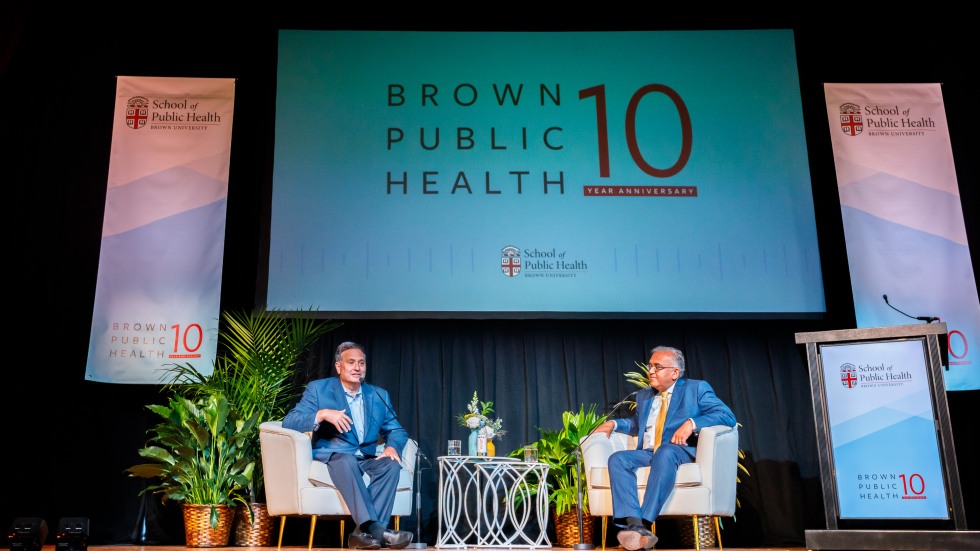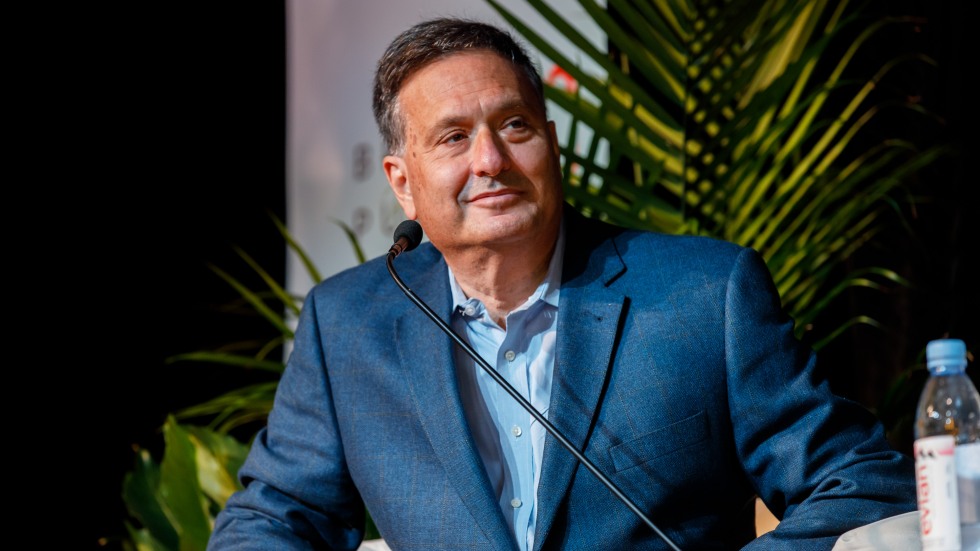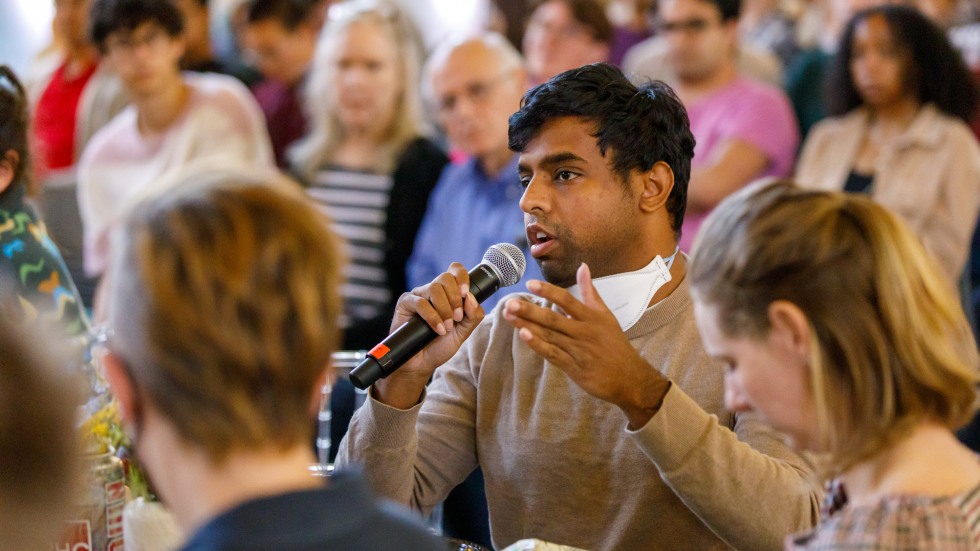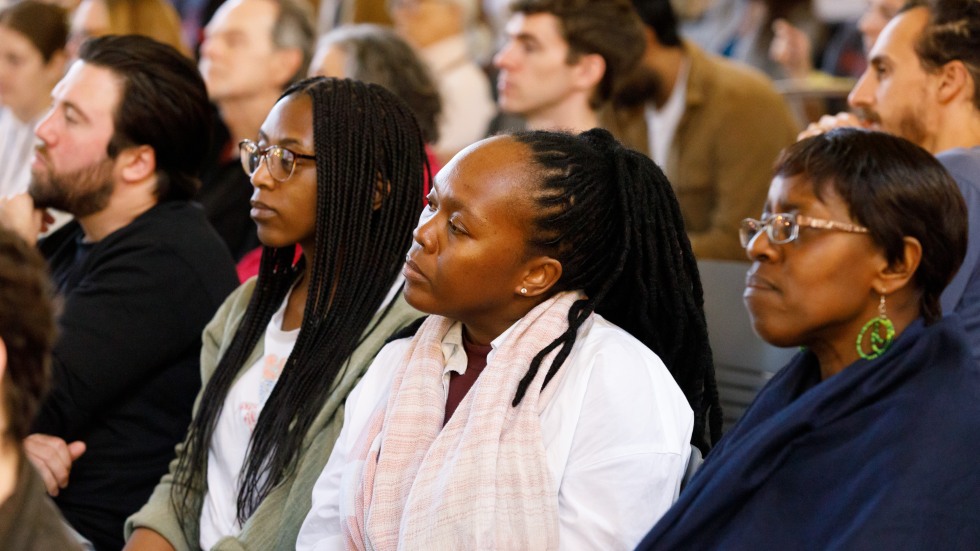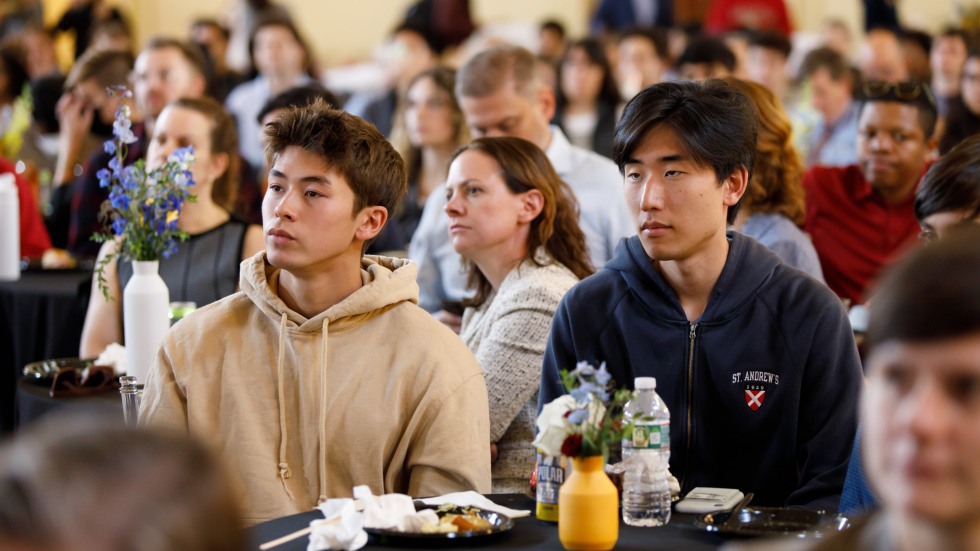President Christina H. Paxson welcomed a full house to the launch of the 2023-2024 Dean’s Conversation Series on September 28 at Alumnae Hall. Crowds had gathered to hear from the event’s special guest, Ron Klain, a distinguished figure in government, law and public affairs whose career accomplishments include advising three U.S. presidents.
Most recently, Klain served as White House Chief of Staff under President Biden, a tenure marked by significant achievements that includes overseeing the administration’s COVID-19 response and contributing to key legislative milestones such as the American Rescue Plan Act, the Infrastructure Investment and Jobs Act, the CHIPS and Science Act, and the Inflation Reduction Act. Klain also served as Vice President Al Gore’s chief of staff from 1995 to 1999 and led the Obama administration’s response to the Ebola virus.
Dean Ashish K. Jha, who served alongside Klain during his tenure as White House COVID-19 Response Coordinator, began the conversation by asking about the transition period of the Biden administration in late 2020.
“We were in pretty bad days,” Jha said. “We had a lot to do. We had a president who was not super excited about leaving the office. The economy was facing substantial headwinds. The challenges were extraordinary. In that broad set of challenges, how did you think about the pandemic? How did it get prioritized?”
